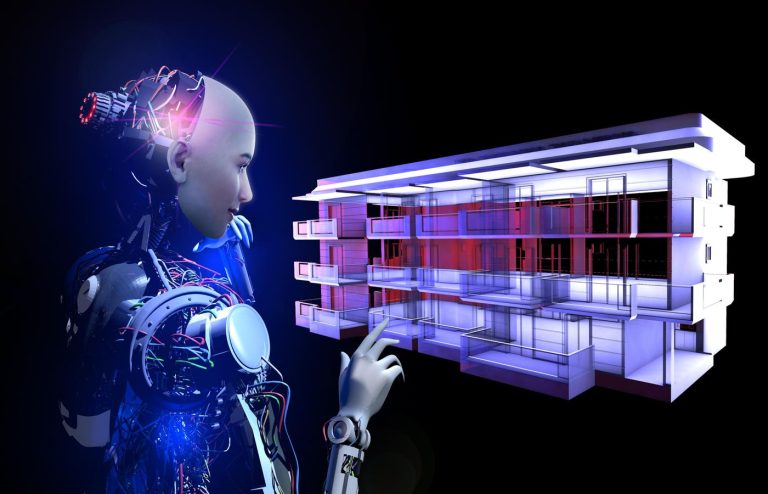Machines make decisions that until now only humans made.
This week is the largest trade show in the retail industry, the National Retail Federation Big Show in New York. Typically, the show brings together thousands of technology providers, large and small, offering services to retailers.
The one phrase I’ve heard more than any other is “AI Agent.” This technology was everywhere. If you don’t sell it or buy it, you talk about it.
What is this?
Simply put, an AI agent is software that uses artificial intelligence to interact with its environment, learn from its experience, and perform tasks. (My colleague Doug Laney, a contributor to Forbes, gives a more complete definition of the different types of AI agents. here.)
This last part, task execution, is what differentiates AI agents from other technologies. An AI agent can make decisions and implement them itself. To make this a little less scary, changes made by an AI agent can be configured so that they are always subject to human approval.
Like that:
Target is hiring thousands of people for fourth-quarter holiday sales who don’t receive the training that more permanent employees receive. Target has partnered with Zebra Technologies, Qualcomm Technologies and Google Cloud to develop technology that can answer many of these employees’ questions and resolve the issues they identify.
For example, if they can’t find something, the software tells them where it should be and if it’s not on the shelf, the software makes a move from the store or a restock order from a supplier .
Ordering a box to move from the back room or placing an order with a supplier is what makes the software “agentic”. (Remember this word, everyone uses it.) The ability to make a decision and take action is what defines an AI agent. As the name suggests, it acts as an agent.
Mark Chrystal, co-founder of Profitmind, told me that with an AI agent, “you give it a goal and you give it access to the tools to solve (for that goal) and it figures out how to achieve your goal.”
Profitmind takes information about retailers or brands, as well as their strategy and competition. The AI agent tells you what it found and what your next tactic should be. Profitmind is used by Home Depot, Crocs, Batteries Plus, HEB and others. It states that on average Profitmind customers experience a 21% increase in revenue, 14% gross profit and a refund of Profitmind fees within a month.
Matt Pavich, senior director of strategy and innovation at the Revonics subsidiary of software company Aptos, explains that AI agents are not about asking a question and getting an answer, but about doing something .
Pavich says you could ask him to “help me price match Walmart on my top 50 SKUs or beat Walmart by 2% or be above Walmart on high elastic items.” It could then tell you what prices you needed to be at and measure the impact of implied price changes on unit sales, profits, supply chain and customer loyalty. With your permission, it implements the price changes.
An AI agent is not the solution to everything and especially not for the in-store customer experience. Nikki Baird, vice president of strategy and product at Aptos, says having AI agents serving consumers in a store “automates the experience” and is a bad way to treat customers.
And of course, there is controversy. According to the fashion matching software company Find mineSome sites block AI agents from reviewing their data to protect their content or to prevent their site from being invaded by AI agents. Findmine believes this type of blocking is disadvantageous and ultimately makes a brand less accessible to consumers.
Is this hype or is it real?
No one I’ve spoken to thinks AI agents are just a fad. But there are caveats.
It’s going to take time. Aptos’ Baird told me that “this won’t be widely adopted in 2025, some people will use them but it will happen in fits and starts,” she said.
When I asked people what retail technology we’d be talking about next year, they usually said “more agents.” Nobody thought it was going to disappear.
One thing I didn’t hear about at the Big Show in New York was the cost of AI. But Zach Kass, a futurist who spoke at the Pet Industry Leadership conference in Florida this week, explained that the cost of AI units is falling much faster than computing power has generally fallen in the past.
According to Kass, the cost of using GPT 4 has decreased by more than 93% between 2023 and 2024 (to about 5/10,000th of a cent per word), leading to even faster adoption.
What’s next
When I asked people what technology would come after AI agents, they said “AGI,” which stands for artificial general intelligence. This is a theoretically possible step where, according to Wikipedia“AI systems could match or surpass human cognitive abilities in any task.”
Whether this will actually happen, whether this is actually the next step in technology and when it might happen, well, no one predicts any of that.
What is clear is that your in-store and online shopping experience will be heavily impacted by AI agents performing tasks in the background without being asked.


